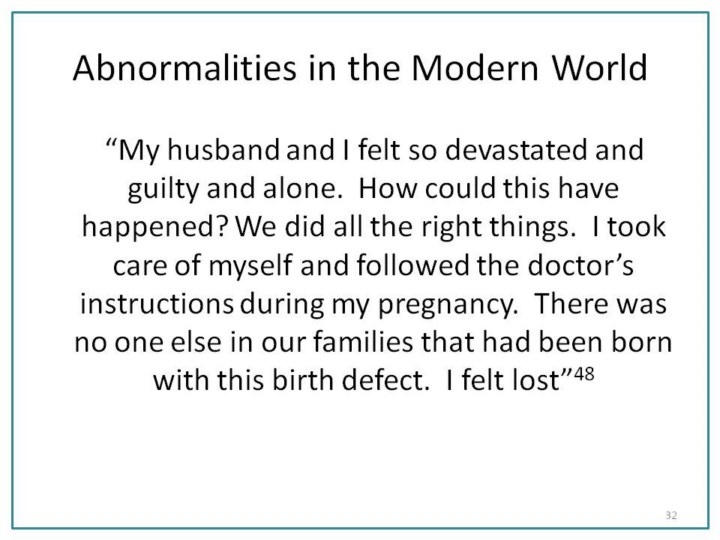| front |1 |2 |3 |4 |5 |6 |7 |8 |9 |10 |11 |12 |13 |14 |15 |16 |17 |18 |19 |20 |21 |22 |23 |24 |25 |26 |27 |28 |29 |30 |31 |32 |33 |34 |35 |36 |37 |38 |39 |40 |41 |42 |43 |44 |45 |46 |review |
 |
Despite these remarkable advances, children are still born with moderate and severe birth defects. Some conditions, such as anencephaly, remain a mystery and are impossible to predict. Fetal tests such as amniocentesis offer diagnosis before birth. For most parents, these tests bring good news and relief. However, when the results detect a serious abnormality, the parents may decide to terminate the pregnancy. No matter their decision, the random and inexplicable nature of the birth defect may leave feelings of guilt, anger, and anxiety. One mother explained: “My husband and I felt so devastated and guilty and alone. How could this have happened? We did all the right things. I took care of myself and followed the doctor’s instructions during my pregnancy. There was no one else in our families that had been born with this birth defect. I felt lost.”49 In this state, parents may blame themselves or decide that it was a punishment from God. Others will turn to religion for comfort, imaging their child safely in Heaven.
|